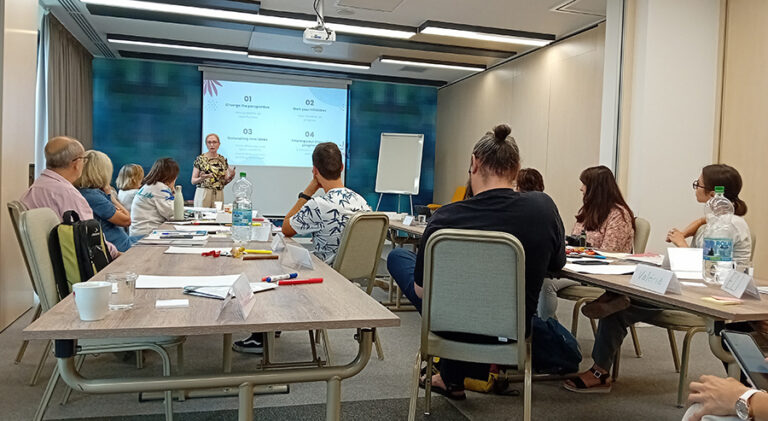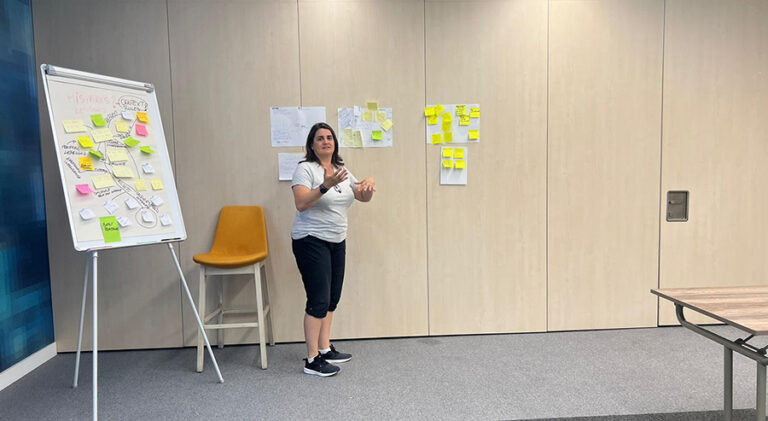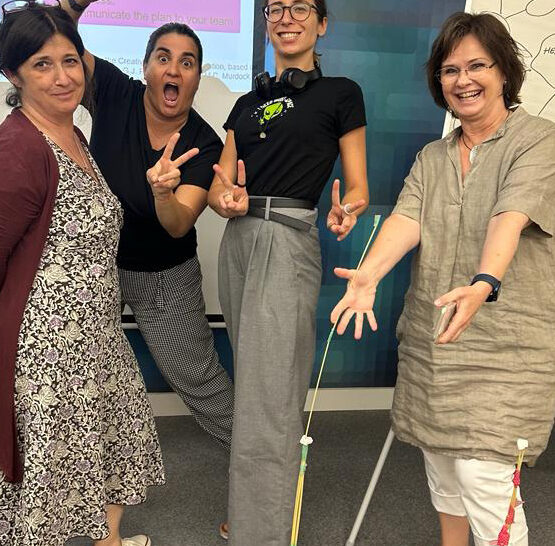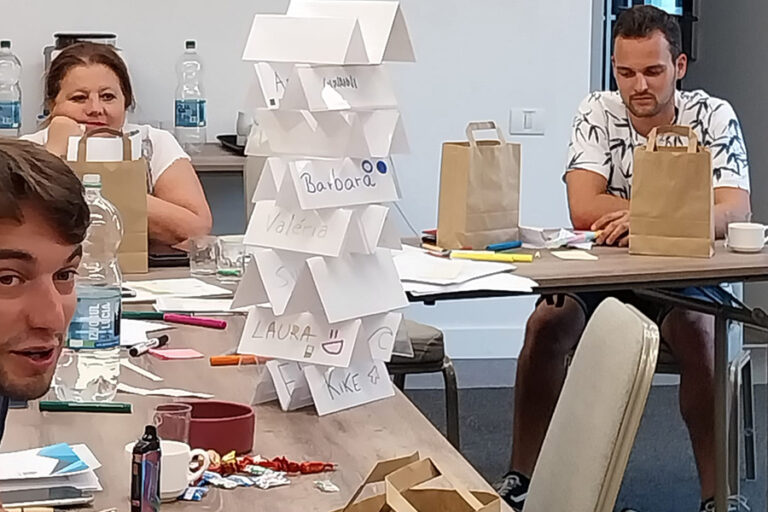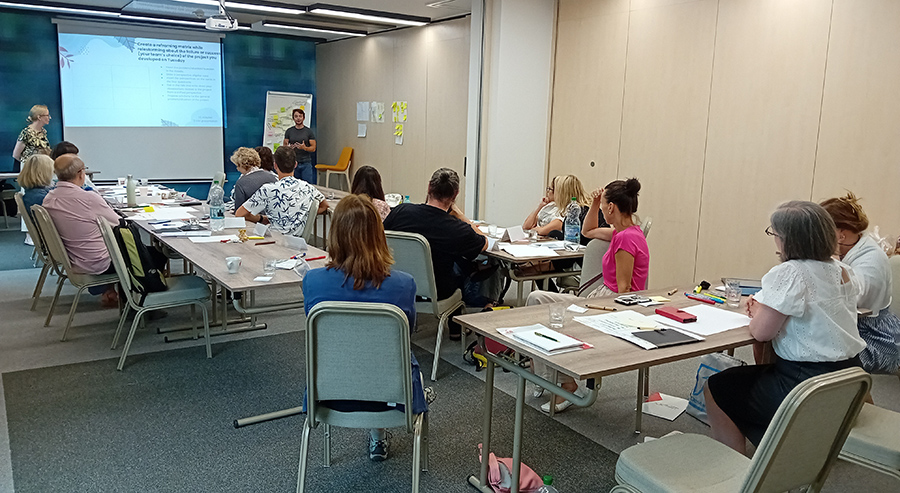There is always something to be learned, updated or at least, remembered. Yes, some of the skills, strategies or tools we learn throughout our professional lives are sometimes stored at the back of our heads, unused, forgotten, or even lost at times. Additionally, revisiting some subjects at different times in our lives in different contexts with different people and their new perspectives can, indeed, broaden both our general and specific understanding of similar, recurrent issues.
During these two weeks, I was introduced to some theoretical material and interacted with 32 colleagues from 20 countries around Europe in practical training activities to identify and understand problems so that we could come up with creative solutions during the decision-making process. In each 4- or 5-hour course day we received input, asked questions, made comments, exchanged opinions, revisited concepts, interpreted problems, designed solutions in an open-minded and respectful environment full of curiosity and new ideas. They were hours of great interaction and collaboration where professionals from different cultures, languages and ages who have diverse interests managed to get together and execute various tasks, genuinely learning from each other.
It was great to step out of the office and be immersed in another context where the issues dealt with during the training are related to our jobs and addressed by a collective thinking, bringing several different lights to the same topic. The number of “why don’t you…?” and “how about…? or “Have you tried…?” was inspirational and, why not say, refreshing. Lots of thinking going back home!
Training main takeaways
When it comes to the actual learning, I can say that my main takeaways were that:
- I should always empathize with my colleagues, partners and customers in general during the process of understanding the challenges and barriers we face on a daily basis (Design Thinking applied here)
- it is extremely important to dissect the situation until we reach the real core of the issue and not keep dealing with the symptoms (using the 5 Whys strategy)
- taking a break and a deep breath is essential in the problem solving and decision-making process, especially when we reach a brick wall or feel mentally blocked
- taking (calculated) risks, not being so afraid of making (reasonable) mistakes and leaving my comfort zone are necessary if I want to reach creative solutions
- there are different ways to see and/or address the same issue, and we can do things differently depending on many factors and contexts (6 Thinking Hats theory here)
And many other learnings that would take an eternity to list here.
The cherry on the cake
And let’s not forget the after-course time when we could interact in a more relaxed context and exchange professional expertise as well as cultural backgrounds and personal interests while exploring the cities (Palermo and Timisoara) in a big group or in smaller ones according to personal interests, affinity and schedule.
But don’t take only my word as the whole truth. My colleague Aedemar Cooke from Ireland said that she found the experience “enriching in terms of culture, friendship and learning”. She also recommends that future participants should embrace all the different experiences. Maria Clementina (Portugal) agrees and adds that her doors are open to all when we visit Lisbon. Barbara Wieners-Horst (Germany) and Madeleine Marchand (Switzerland) expressed their surprise regarding how much we do not know about Romania and its history, as well as its religious diversity and cultural background. For Madeleine, the mix of workshops, sightseeing and social activities was a great combination. Brigitte Hampel (Austria) agrees with Madeleine, including the balance between theory and practical exercises. The guided city tour was the highlight of the week according to her, and she draws attention to the need to pack accordingly when it comes to summer. Barbara also shares some wisdom by reinforcing that, if you do not understand something, “ask, ask, ask”. She also suggests that participants save some extra days to enjoy the city a bit more on their own.
My colleagues Laura Ferrario (Italy), Kike Souto (Venezuela/Spain/Poland) and Rokas Didrikas (Lithuania) rented a car together and drove to Corvin Castle in Hunedoara, Romania where they made a video talking about their general impressions of the experience. You can watch the short video shot by Giovanni Cerutti here.
I can conclude by saying that it was a consensus that the groups, trainings and experiences were great and we want to do it again! Diverse, committed, curious and fun people who had the opportunity to live something new, learn and grow together, and agreed that we do want to keep the conversation going by keeping in touch via our WhatsApp groups.
